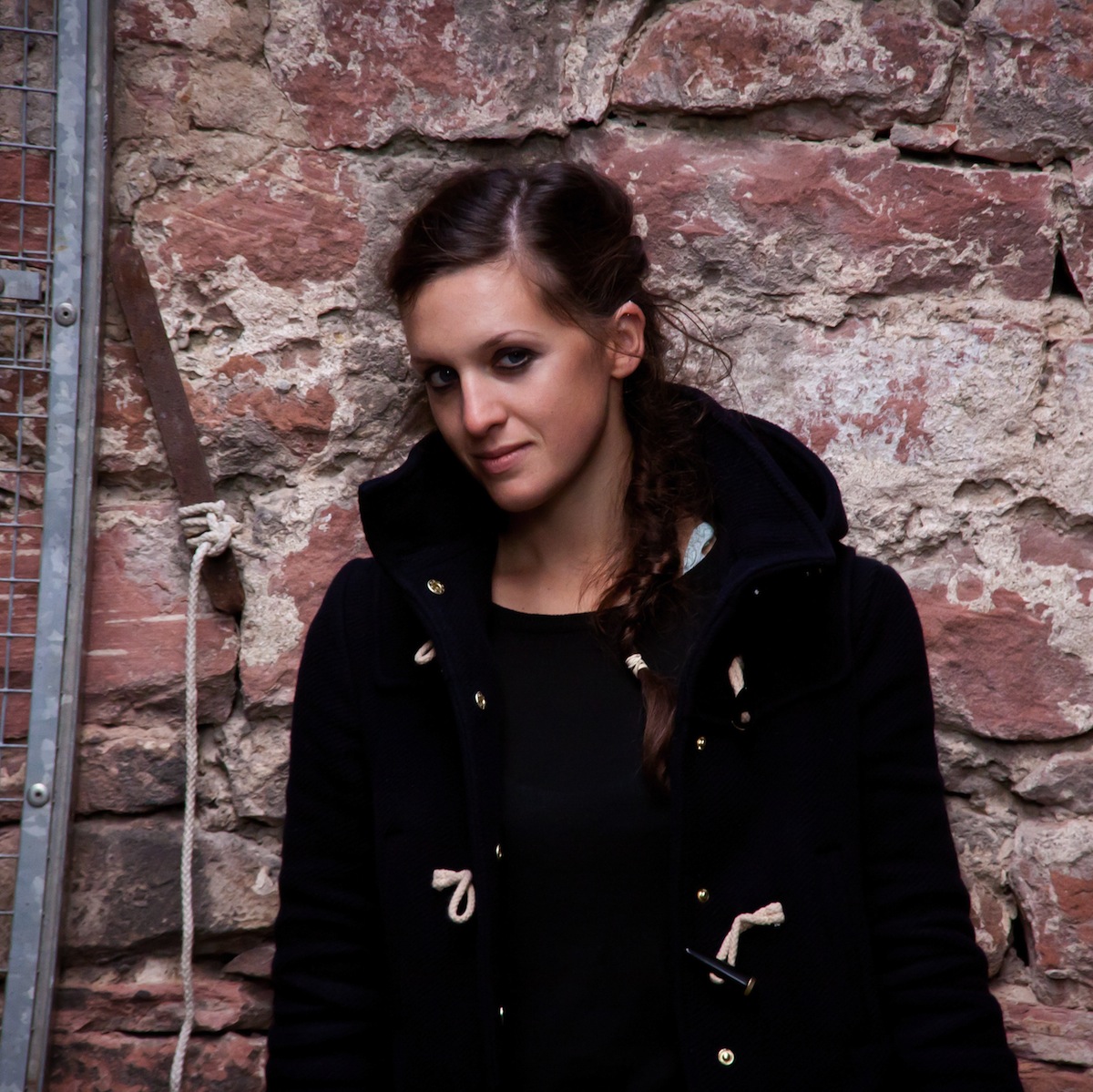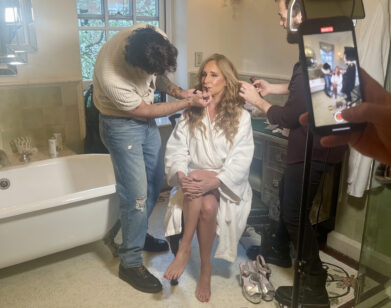Abigail Tarttelin’s Golden Age

ABOVE: ABIGAIL TARTTELIN
British novelist Abigail Tarttelin’s Golden Boy (Atria Books) highlights the intense personal and societal struggles of an intersex 16-year-old named Max. Tarttelin’s effort as a 25-year-old woman to get inside the head of her protagonist, a transgender teenager, makes Golden Boy a riveting, evocative read. Her prose is as compassionate as it is compelling. We chatted with Tarttelin about perverts, sexual aggression, and how women have the power to change it all.
LIANNE STOKES: What made you tackle such a tough topic?
ABIGAIL TARTTELIN: I started thinking about gender and how it’s an arbitrary thing if you’re born with an XX or XY chromosome, but it can determine your experience of the world. It’s about whether you are physically intimidating vs. being physically intimidated. It determines whether you are the one to take an active role in sex and society.
STOKES: They say that gender is constructed. Do you believe that?
TARTTELIN: I would say that it’s very difficult to personally construct your gender. I think a lot of it is socially constructed. If you look at The New York Times‘ coverage of trans children, some of them were as young as four years old. One said, “I see my daddy in the woodshed, and that’s where I’d rather be than in the kitchen.” That to me doesn’t ring as somebody who is trans, it rings as someone who has grown up with a narrow view.
STOKES: How did your upbringing affect your views on gender?
TARTTELIN: Even though I grew up in an area of England that was more conservative than my personal politics and my family’s personal politics, I grew up with a lot of guy friends. There was no real difference between us. When I moved to London, it really became apparent that gender was going to make a mark. I started experiencing sexual intimidation and aggression. People coming up to women on the streets and telling them how hot they are and what they wanted to do to them. For me, that was shocking coming from a village. I thought intersexuality was a great way of exploring that shock. In the book, Max is brought up a boy but has aspects of the feminine. When he is suddenly treated like a woman, and treated like a victim, it put him in that role of being easily overpowered.
STOKES: What’s funny about these people who yell lewd things at you on the street is, if you yell back at them, “I’d love that, baby!” They cower in shock. It’s all talk.
TARTTELIN: I had a little moment of realization. I was in Camden Town and I was skateboarding. I went past some teenagers and one of them, he was about 12, yelled at me, “I want to fuck you, lady.”
STOKES: Can you believe that?
TARTTELIN: I couldn’t. In the moment I realized the only reason he’s doing this is because he has a cock and I don’t. He feels I can’t say anything back. He’s pointing and being aggressive to me because he thinks I can’t do anything to him. But then I said something that freaked him out. [laughs]
STOKES: You did? What did you say?
TARTTELIN: Well, I turned it around and said, “What if I don a strap-on and fuck you?” He was suddenly incredibly shocked, and all his friends laughed at him. I feel he’s going to think twice about saying that to another woman.
STOKES: You’re every woman’s hero right now.
TARTTELIN: I also realized in that moment what you’re born with dictates your life. Do you run home after dark? Do you choose an apartment in a questionable neighborhood? I dated a guy a few years ago in California, actually who was, as we say in England, “built like a brick shithouse.”
STOKES: [laughs] We say that in America too.
TARTTELIN: He was a lovely guy, but I thought, his arms are as big as my head, he could kill me. I don’t think that men would predict the kinds of things that women think about when you are contemplating having a relationship. A lot of people characterize women as more cautious. I don’t think that’s an inappropriate characterization, but that’s not a natural thing we’re born with, it’s something that comes about. It’s women who are the focus of “rape culture” as it exists in the world. It changes you and the kind of person you are. A male friend of mine recently went to Panama, and followed a bare-chested guy with a machete into the jungle to take pictures of these rare rocks. I thought, “Wow, what a wonderful experience.” It’s nothing I’d ever have done because that would have been the stupidest thing I could do, ever.
STOKES: How did intersexuality personally affect you?
TARTTELIN: It did affect me on a personal level. I’m still asking questions on the subject, I feel I don’t have all the answers yet. I have never felt transgender or wanted to be. There are things however, I struggle with having the gender that I was given, and the roles I’m supposed to play. One of the things that started me writing Golden Boy was having ended a new relationship, a very good one. I realized I had been playing roles in past relationships that I hadn’t really chosen, but that were expected of me.
STOKES: I was just discussing this with a friend recently about how funny or bold women are assigned a masculine quality. Do we need to play the role of the coquettish young woman with no worldview to make men feel it’s safe to be attracted to us?
TARTTELIN: Yes, I was just talking to a friend about this. She made a comment about letting guys win when she goes bowling. It was such a small comment, but it shocked me. As much as I think of my peer group as very forward-thinking. I couldn’t believe that that is something she could accept.
STOKES: Do you think things are evolving?
TARTTELIN: I have a guy friend who said to me, “Hey, you know it’s strange, feminism is cool now.” I think now people understand that being a feminist means everyone should be equal. What really shocked me was being in America during the Republican primaries. I haven’t been exposed to that kind of thinking. I was so shocked that that kind of thinking exists in a modern world, and in a first-world country.
STOKES: They wanted to take away funding from Planned Parenthood, the only affordable healthcare for women in the U.S.
TARTTELIN: They want to take away women’s rights to look after their own survival. Pregnancy takes a huge physical toll on your body. I have many friends who have had babies and many of them require medical help and attention, emergency Cesarean sections and forceps. If you think that people just have a kid and it’s no big deal, that’s not true. It’s one of the most dangerous things for a woman to do. If you take away access to accessible medical women in America, you’re going to bump up the death rate. I broach in the book that Max is living as a boy, but his “boy” label insists upon things that his body has no control over. There was an American politician [Phil Gingrey] who said, “Women have a way of shutting that thing down, when it comes to being pregnant as a result of rape.” That’s the most absurd thing I’ve ever heard in my life. If he had a female body, I don’t think he’d be saying that.
GOLDEN BOY IS OUT TODAY. FOR MORE ON ABIGAIL TARTTELIN, PLEASE VISIT HER WEBSITE.






